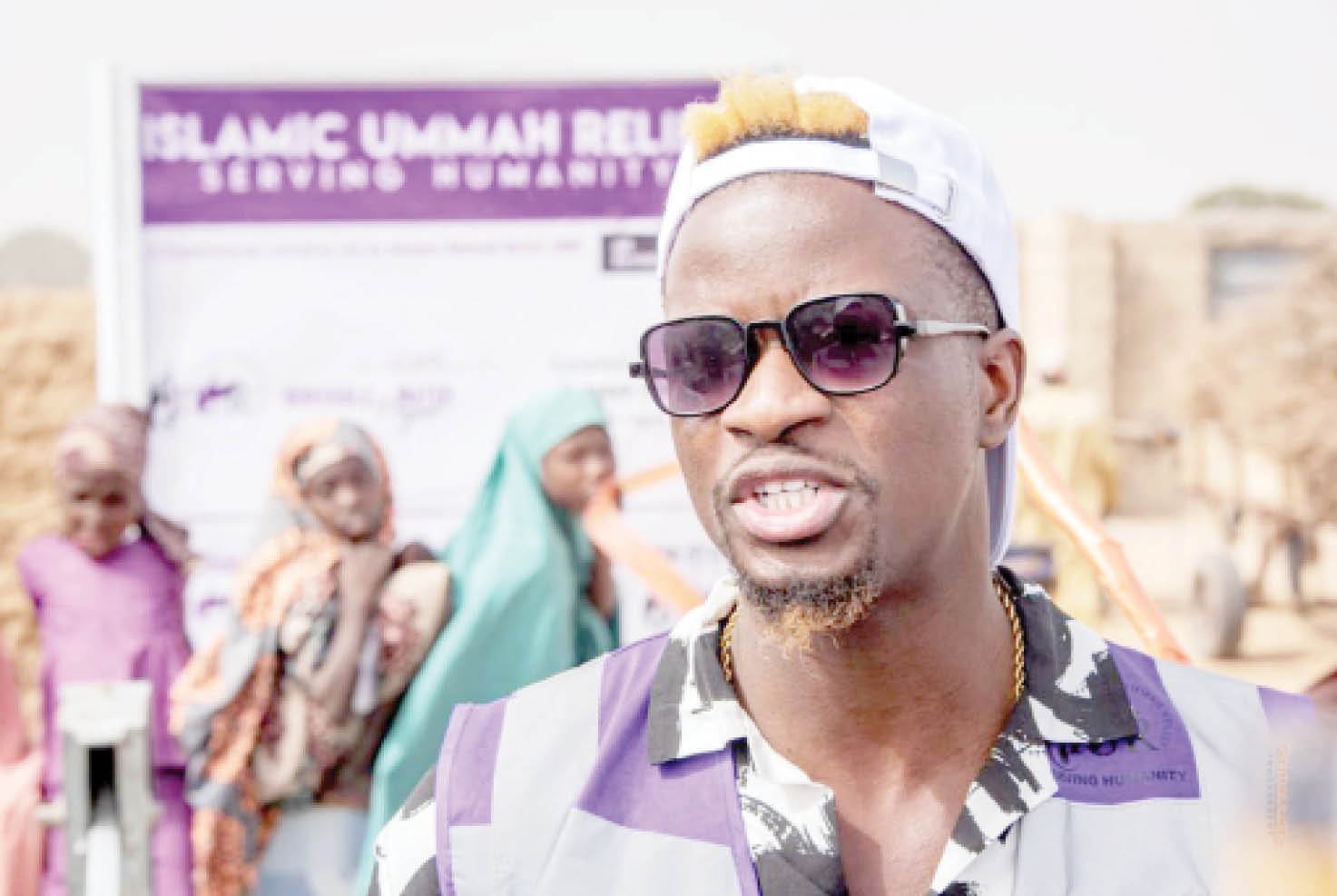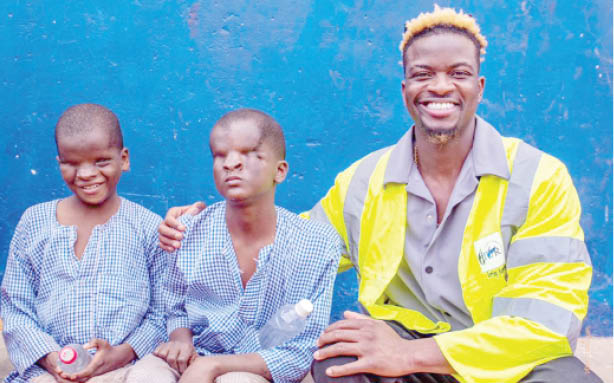Why I converted to Islam – Canadian rapper Jae Deen
Joshua Asare is a young rap artist currently known as Jae Deen after he converted to Islam. The Canadian-born Ghanaian artist was in Katsina State for the first time under the Islamic Ummah relief organization and in this interview, he talks about his visit to Nigeria, among other issues. Can you tell us a little […]

Joshua Asare
Joshua Asare is a young rap artist currently known as Jae Deen after he converted to Islam. The Canadian-born Ghanaian artist was in Katsina State for the first time under the Islamic Ummah relief organization and in this interview, he talks about his visit to Nigeria, among other issues.
Can you tell us a little about yourself?
I was born on September 23, 1994 as Joshua Asare to Christian Ghanaian parents in Ottawa, Canada. I started music while in high school and later converted to Islam at age of 15. My conversion process started through a 14-year-old girl while in high school. I told her I wanted to marry her but she said it wouldn’t be possible because we were not of the same faith. That triggered my research on Islam and it took me months before I finally decided to convert. Though we didn’t get married, but she triggered my quest for Allah.
I was a Christian and after that encounter with the girl, I devoted my time to researching on Islam. When I made up my mind, I told my father and he was like ‘If you renounce your faith, consider yourself not my son anymore’, but my mother was a little understanding and didn’t discourage me.
However, few months after my conversion, I continued with my music but this time around as a Muslim rapper who performed with a group called Deen Squad. Through my music, I was bringing a new Islamic flavour of hip-hop to the rap business.
- Hold us responsible for desired new Nigeria, Obi, Baba-Ahmed
- Turkish/Syrian earthquake: JNI calls for donations as death toll rises to 22,765
I started off by doing remixes of popular songs, which led to my gaining more followers, especially on social media as Jae Deen. I became well-known as an Islamic singer and not as an ordinary rap artiste.

Why are you in Nigeria?
I am in Nigeria to do charity work under the Islamic Ummah relief organization with the motto ‘Serving humanity’. It is a charity organization with the aim of serving humanity, which is also an integral part of my brand and because I have social media platforms, I use these platforms to show that the world needs help. I have visited many countries in Africa; I have been to Kenya, Ethiopia and Ghana – which is my country of origin.
However, Nigerian culture is not alien to me because I have been watching Nigerian movies and therefore being in Nigeria is just like coming back home.
We provide shelter usually at orphanages for the needy, and support their health needs as well. In education, we build schools, distribute school kits and organize counselling sessions, training programs that provide skills to equip women, especially widows as a means of sustenance through self-reliance.
We have visited schools for the blind to support them, we have built boreholes to ensure potable drinking water and also, we are building an orphanage in Katsina State which we hope to launch soon. We want to render assistance to our people across the globe in the little way we can through charity activities and Nigeria happens to be one of the countries we are visiting.
How would you describe Nigerians?
Nigerians are so kind, loving and welcoming with a high sense of gratitude. I gave a speech at the school for the blind children on the fact that coming from Canada doesn’t mean we have everything. I told them that there are things they have which we lack there and that is the power to show gratitude – the ability to genuinely smile and walk around while people say hi to you despite their conditions. To be honest, I have never seen such gratitude being displayed like this before.
What would you say is your take home lesson in Nigeria?
As I said earlier, I have come face to face with pure gratitude and appreciation irrespective of one’s condition. We may have a roof over our heads, food to eat and other social amenities in our country, but we are not as happy and grateful as the people I met here in Katsina, I now know the meaning of gratitude.
I saw children smiling and laughing despite their physical challenges and other social deprivation. They showed me what it is to be alive and thankful; we played and laughed together as they showed us appreciation for the little we have done for them.
With what I saw, I look forward to visiting Nigeria again which by God’s grace I will. In Nigeria, I saw pure compassion and thankfulness.
What makes your songs now different from what you used to do initially?
Initially, I did the usual hip pop music and it is apparent that hip pop music has been characterized by harsh language and usually promotes violence. However, we now do songs that promote peace and encourage young people to believe in themselves and do positive things. We gradually became so popular on the internet and we have travelled across the world.
Apart from music do you have other passions?
Yes, I have a strong passion for learning languages as well as encouraging people to do the same. I believe learning new languages allows for easy understanding of the different diversities in people’s norms and beliefs. I believe this allows for understanding and respect for each other. So far, I have learned a couple of languages and I’m still in the process of learning others.
What are your musical prospects so far?
Alhamdulillah, so far so good in my career, I won the (RIS) Reviving the Islamic Spirit award in 2013. I was 16th at the Awakening Records and also won an award at the Worldwide Talent Contest, among others.
